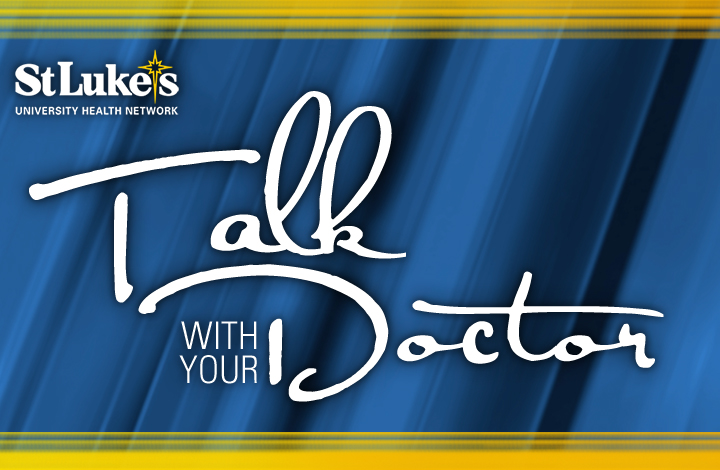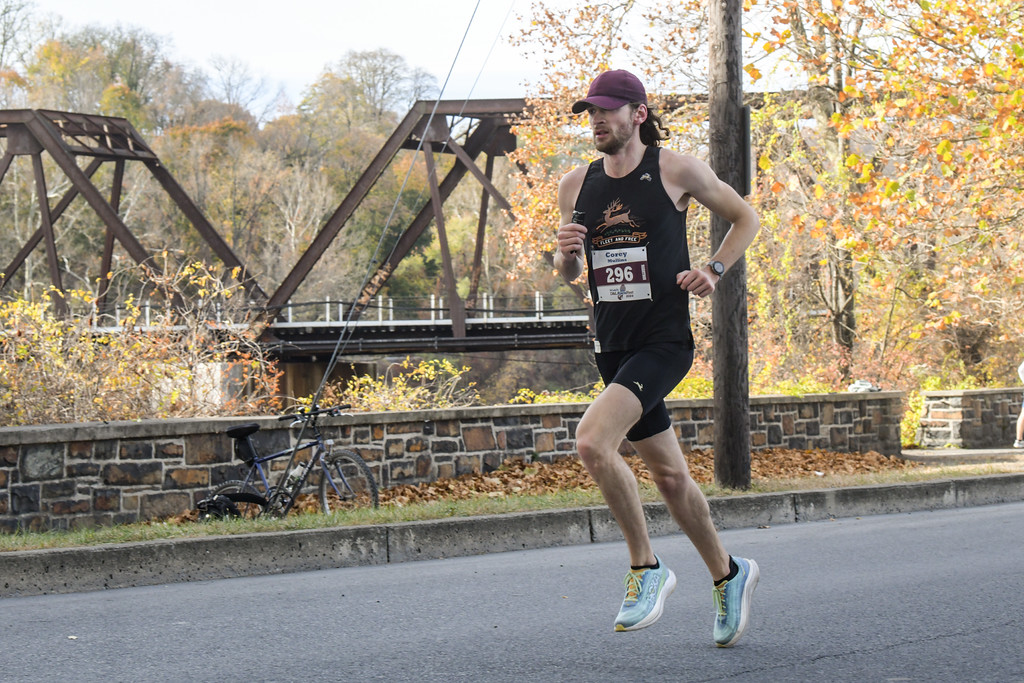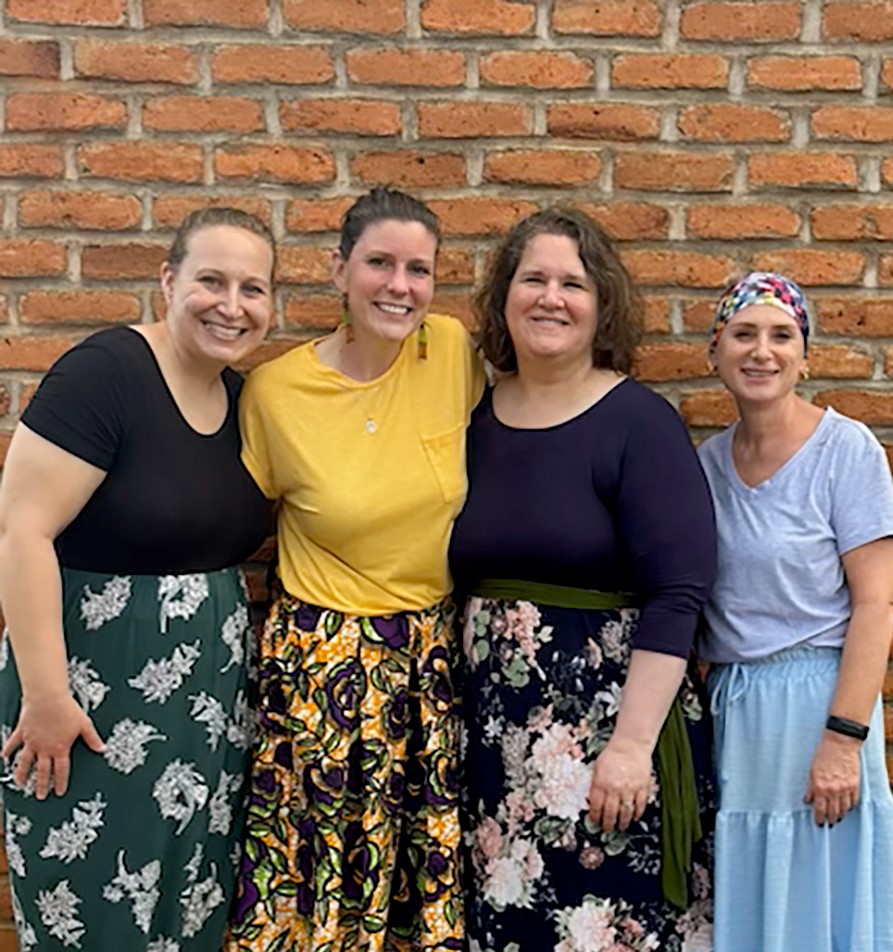St. Luke’s Medical School Students Support Free Clinic in South Bethlehem
July 11, 2019
It’s a Saturday morning and the first patients are trickling into the HEARTS clinic at the Fowler Community Wellness Center in Bethlehem. On this day, a woman complaining of knee pain is being examined by Jean Huh, a rising third-year Temple/St. Luke’s Medical School student, under the watchful eye of Elsa Montoya Aguilar, MD, a first-year resident in family medicine at St. Luke’s Bethlehem.
Placing her stethoscope on the woman’s back, Huh, asks the patient to take a deep breath. “OK, thank you. It sounded good,” Huh says. Dr. Aguilar interprets her words into Spanish for the woman.
About 150 Temple/St. Luke’s students like Huh have volunteered at the HEARTS clinic since it was established in 2011. Located in the heart of South Bethlehem, HEARTS, which stands for Health, Education, Advocacy, Resources, Temple/St. Luke’s, is a free clinic run by Temple/St. Luke’s students, with faculty supervision. It is open once a month during the school year.
Here they are not only learning how to be compassionate doctors and run a clinic, they are also helping a disadvantaged community, said Bonnie Coyle, MD, chair of the department of community health and preventive medicine at SLUHN, who helped start the clinic.
The students, who have already taken basic science classes, such as anatomy, pathology and pharmacy, have just started to learn how to take patient histories and conduct physical exams in what are called doctoring courses.
Volunteering at the HEARTS clinic gives the students not only more practice on their skills, but “working with real patients makes it more meaningful,” said Joel Rosenfeld, MD, chief academic officer, SLUHN, and senior associate dean and professor of surgery, Lewis Katz School of Medicine Temple University.
Compassion and primary care
Dr. Coyle said the clinic’s other purpose is to help get medical students interested in and excited about considering a career in primary care and providing care for vulnerable populations.
“It gives them that hands-on connection,” she said.
The patients are uninsured or underinsured and face numerous barriers to accessing health care, such as lack of employment or transportation or they speak limited English, among other obstacles. “Part of what we want to accomplish is helping the students become more sensitive and open to the struggles of the uninsured and homeless or near homeless populations that exist in our communities,” Dr. Coyle said.
That’s what drew Nathan Kerr, a fourth-year student who has been volunteering at the clinic since his second year. “I wanted to help people in the community and to help those who are unable to get the proper care without some assistance,” Kerr said.
Dr. Coyle said research shows students start medical school motivated by altruism but by the time they graduate four years later, “they are jaded, disgruntled and much less compassionate. Med school is grueling. They get beaten down by the process.”
“The HEART clinic becomes one of the ways we’re trying to remind them, this is what you wanted to do. You wanted to make a difference,” Coyle said.
The HEARTS clinic was created after two Temple/St. Luke’s students approached administrators about starting a community health care program in Bethlehem similar to one Temple operates in Philadelphia. Initially based at Broughal Middle School, the HEARTS clinic moved a few blocks away to the Fowler Center, which was recently renovated.
Each month, about 10 to 15 medical students participate. The students run the clinic and oversee the flow of patients from the time they register through to their discharge. Lehigh University student serve as patient navigators and conduct assessments on the patients’ mental health and social determinants of health.
Jasmine Singh, a rising fourth-year Temple/St. Luke’s student who has been volunteering at the clinic since her first year, said the experience has been inspiring.
“During the first two years, a lot of what we did in school was study and take tests. Although we had our doctoring classes, we didn’t get to see patients. I got to interact with real patients and apply what I was learning in a clinical setting as opposed to a classroom,” she said.
As a result of her experience at the clinic, Singh said she is considering specializing in internal medicine.
Supervisors check plans
Meanwhile, the activity level has picked up at the clinic as more patients arrive. Nguyet-Cam Lam, MD, director of the residency program at St. Luke’s Bethlehem, and John Patterson, MD, a retired chief of emergency medicine at SLUHN, are supervising the students.
“I think this clinic really exemplifies what family physicians need to do for the community, to serve the underserved,” Dr. Lam said.
At that moment, Dr. Aguilar steps out into the hallway with Huh and her classmate, who have just completed the exam. It is debriefing time.
Dr. Aguilar listens as they discuss options: order an X-ray; prescribe medication; do nothing. She guides them through the case and eventually they develop a course of action, which she will present to Lam, who will review their recommendations.
Huh turns to write up the patient’s history. One more step has been taken on the road becoming a doctor.
Philanthropic support allows St. Luke’s University Health Network to deliver world-class care that makes a difference every day for every patient. Make a gift online, or call the Development Office at 484-526-3067 to learn more.
About St. Luke’s
Founded in 1872, St. Luke’s University Health Network (SLUHN) is a fully integrated, regional, non-profit network of more than 15,000 employees providing services at 10 hospitals and 300 outpatient sites. With annual net revenue greater than $2 billion, the Network’s service area includes 10 counties: Lehigh, Northampton, Berks, Bucks, Carbon, Montgomery, Monroe and Schuylkill counties in Pennsylvania and Warren and Hunterdon counties in New Jersey. Dedicated to advancing medical education, St. Luke’s is the preeminent teaching hospital in central-eastern Pennsylvania. In partnership with Temple University, St. Luke’s created the Lehigh Valley’s first and only regional medical school campus. It also operates the nation’s longest continuously operating School of Nursing, established in 1884, and 28 fully accredited graduate medical educational programs with 226 residents and fellows. St. Luke’s is the only Lehigh Valley-based health care system with Medicare’s five- and four-star ratings (the highest) for quality, efficiency and patient satisfaction. St. Luke’s is both a Leapfrog Group and Healthgrades Top Hospital and a Newsweek World’s Best Hospital. In 2019, three of IBM Watson Health’s 100 Top Hospitals were St. Luke’s hospitals. St. Luke’s University Hospital has earned the 100 Top Major Teaching Hospital designation from IBM Watson Health seven times total and five years in a row. St. Luke’s has also been cited by IBM Watson Health as a 50 Top Cardiovascular Program. Utilizing the Epic electronic medical record (EMR) system for both inpatient and outpatient services, the Network is a multi-year recipient of the Most Wired award recognizing the breadth of the SLUHN’s information technology applications such as telehealth, online scheduling and online pricing information. St. Luke’s is also recognized as one of the state’s lowest cost providers.
Read More NewsLatest News

April 22, 2025
Weight-Loss Surgery Leads to Pregnancy


April 17, 2025
SLUHN Employee Competes in Boston Marathon on Monday

April 16, 2025